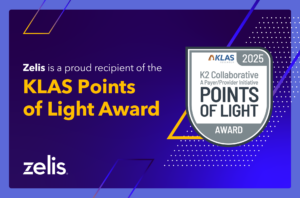Early in 2023, Congress enacted the Consolidated Appropriations Act (CAA), which included new requirements around “accurate, updated and searchable provider directories” for Medicaid and CHIP health plans and managed care organizations (MCOs). The deadline for meeting these new requirements was set for July 1, 2025.
As a mark of approximately one year until required compliance, CMS sent state health officials a reminder letter last month, which provided guidance on requirements and expectations for compliance. The letter specifically addressed:
- Changes to provider directory data requirements and features;
- Availability of enhanced federal financial participation (FFP) for Medicaid FFS provider directory development and operations;
- Non-Compliance: Corrective action plan requirements for non-compliance; and
- Methods for returning to compliance and requesting reapproval of Medicaid systems.
Additionally, key provider directory implementation requirements stemming from the CAA include the following:
- Data updates. Changes the update frequency of provider directory data from an annual to a quarterly basis.
- Data elements.
- Expands provider director data requirements to include the following information for each listed provider: specialty, services address(es), telephone numbers(s).
- Information regarding the provider’s cultural and linguistic capabilities, including languages – which also includes American Sign Language (ASL) – offered by the provider or by a skilled medical interpreter who provides interpretation services at the provider’s office; whether the provider is accepting new Medicaid/CHIP patients; accommodations the provider’s office or facility has provided for individuals with physical disabilities; the provider’s internet website, if applicable; and whether the provider offers covered telehealth services.
- Adds to the minimum required information in the provider directory, including accommodations the provider’s office or facility provides for individuals with physical disabilities, the Internet website of such provider, if applicable, whether the provider offers covered telehealth services, and whether the provider is accepting new Medicaid/CHIP patients.
- Makes other changes to the required information in the provider directory. These include: adding ASL to the linguistic capabilities about which information must be included for primary care case management systems, expanding the underlying requirement to include information on provider cultural and linguistic capabilities from primary care case management systems to also apply to FFS programs, and adding the current managed care program requirement to include information on provider cultural and linguistic capabilities.
- Provider types. Specifies provider types that must be in the directory, including physicians, hospitals, pharmacies, providers of mental health services, providers of substance use disorder services, providers of long-term services and supports as appropriate, and additional providers as required by the Secretary of Health and Human Services (HHS).
- FHIR API. CMS also took this opportunity to remind health officials of certain interoperability requirements stemming from the Interoperability and Patient Access final rule. In particular, that certain CMS-regulated payers establish and sustain a publicly accessible, standards-based (HL7 FHIR Release 4.0.1) API that publishes complete and accurate provider directory information.
- The information in the provider directory API must be updated within 30 calendar days of receiving provider directory information or updates to such information.
Implementing and complying with these requirements can be a heavy lift. Zelis has a team ready to help. You can reach out to them here to learn what tools and services they provide.




